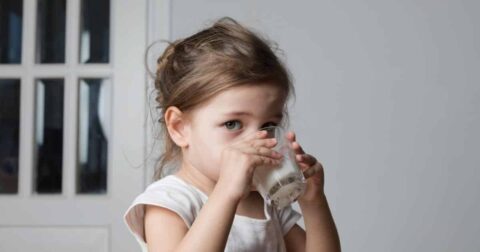Feature
The Meat Industry’s Hidden Link to Wildfires
Climate•6 min read
Explainer
From an early age, we’re taught that milk is essential to our growth and development. What we’re not taught is where that milk comes from.


Words by Sentient Media
From an early age, children are taught that milk is essential to their growth and development. They’re taught that all cows are happy cows and that everyone—regardless of their needs—should consume three cups of dairy every day. What they’re not taught is where that milk comes from.
Modern dairy production relies on the exploitation of female cows, who are impregnated time and again only to be separated from their calves so their milk can be sold for human consumption. In an effort to meet demand, the dairy industry has abandoned small-scale producers and is now dominated by mega-dairies and large-scale factory farms that wreak havoc on everything and everyone in their path.
For many people, cows are synonymous with milk and dairy. Cow’s milk is produced at an immense scale, but industrial dairy production damages the environment.
There are about 270 million dairy cows worldwide. Dairy cows emit methane, a potent greenhouse gas (GHG). Methane represents about 44% of all livestock emissions. The 13 largest dairy companies emit as many GHGs as the entire U.K.
Farming animals leads to ecosystem destruction and biodiversity loss. Feeding and grazing livestock requires the clearing of land and dairy production requires a lot of water. It takes about 300 gallons of water to make one Starbucks Frappuccino.
Dairy farming also causes significant water pollution. Cow manure and fertilizer used to farm animal feed often leaks into waterways. This chemical waste pollutes water and causes harmful algal blooms which kill marine wildlife and threaten our freshwater supply.
As the environmental impacts of dairy farming become more clear, customers are choosing plant-based milks like oat, almond, and soy. Plant-based milks emit far fewer GHGs and are more sustainable than dairy. This minor diet change can greatly reduce our environmental impact.